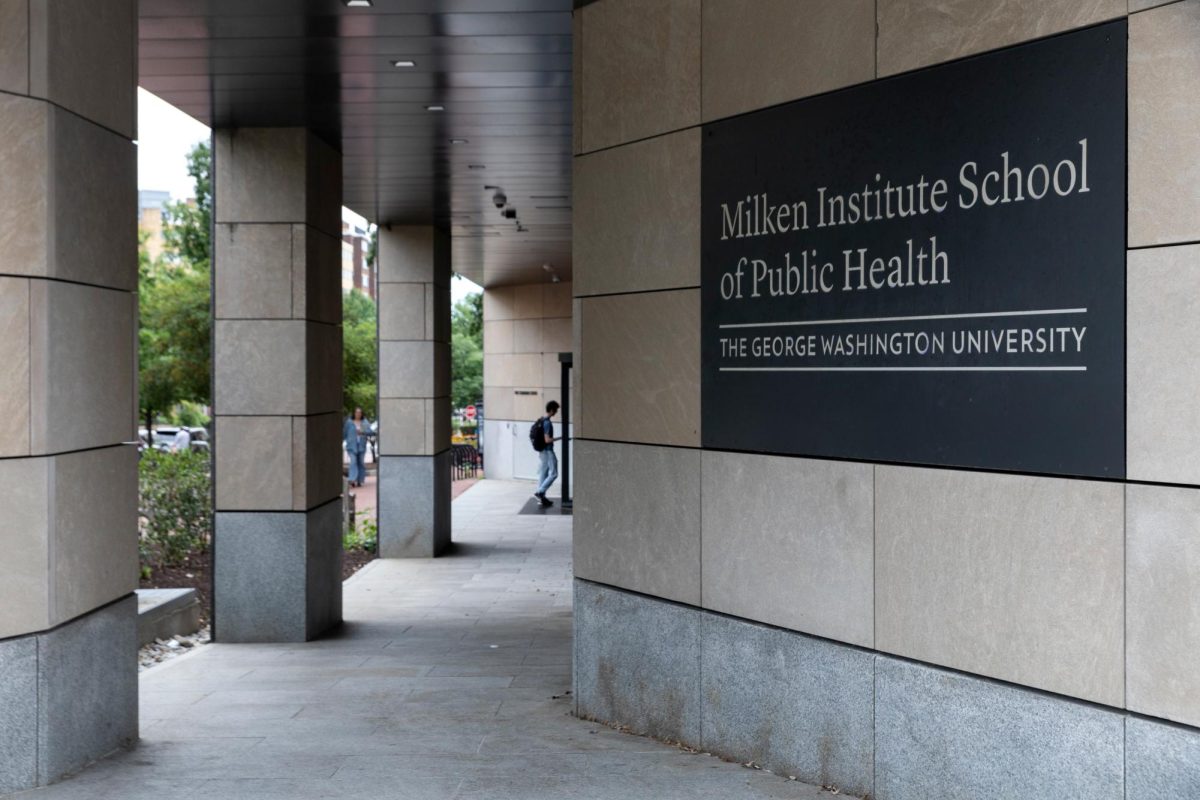
University President Steven Knapp criticized The Washington Post story that painted a scathing picture of GW students’ lavish lifestyles Friday, calling the piece “a very distorted characterization of our students.”
Knapp said in an interview that the 2,350-word story, published online the previous day and in The Post’s Sunday magazine, failed to note the diversity of GW students and their public service achievements. The article listed anecdotes of students shelling out $1,000 for bottle service at clubs and driving expensive cars, alleging class division and a “Great Gatsby” culture on campus.
“Students come here not to party, but because they want to change the world,” he said, pointing to the high number of graduates who enter the Peace Corps and Teach for America as evidence of their larger ambitions. “We don’t simply draw students from the upper echelons of society.”
The story also highlighted the efforts of the Knapp administration to curb tuition growth and cut costs, in part to rollback the University’s pricey reputation.
GW students took to social media to rail against the story, which has garnered more than 700 online comments. Knapp, who spoke to The Post for the story, said he thought it was unbalanced.
“Almost two-thirds of students are on some form of financial aid. That was mentioned in the article but it didn’t appear to me that the reporter actually sought out students who are representative from the other communities from which we draw,” he said.
The University became the first nationwide to breach the $50,000-mark for cost of attendance in 2007. Since then, GW has dropped out of the top 10 on Forbes magazine’s most expensive schools list, despite a near-$60,000 sticker price.
Factoring in financial aid and scholarships, GW’s average cost of attendance is $27,793, according to the White House College Scorecard, in line with similar schools like Emory, Boston, Northwestern and Tulane universities. New York University, a peer school that has a much larger endowment than GW, costs about $9,000 more to attend than GW.
Since Knapp took the helm in 2007, tuition has risen at 3 percent increases, with a fixed five-year rate for undergraduates. The average need-based financial aid award has increased by 36 percent to $28,085 over the last decade.
The Post story also mentioned former University President Stephen Joel Trachtenberg, who was dubbed the “high priest of runaway college inflation” by The Atlantic last fall. Trachtenberg helped quadruple the University’s endowment and make GW twice as selective, but also doubled the sticker price during his 19-year tenure, making the University the most expensive in the country in 2007.
In that story, Trachtenberg compared selling GW to selling vodka: “raising the price and upgrading the packaging to create the illusion of quality,” the article read.
The Post story noted that the growth had the unintended consequence of carving out a class divide at GW.
Trachtenberg said in a phone interview Friday that he raised the cost of attendance to improve the University and create a pool of tuition funds that could subsidize financial aid for other students. But, he said, he thought the story was “entertaining.”
“I read these articles and I think, ‘Why should I be embarrassed the school got better and why should I be embarrassed we have rich students?’” he said. “That kids live robust undergraduate social lives, I believe that. I was 18.”
Senior Haley Hakimian, a business major with a concentration in marketing, said she first ignored the texts and Facebook posts alerting her that she was featured in a photo atop the Post story, clad in fur and designer clothes. She used it as a springboard to write a blog post criticizing the story that collected 7,000 page views as of Sunday.
The Post removed Hakimian’s photo from the story after it published online, but she did not know why. She said she did not contact the Post.
In the blog post, Hakimian wrote that while she and some of her friends may be wealthy and visit pricey clubs, the stereotype “fails to detail that these ‘rich kids’ also contribute to society, possess work ethic, and strive for success in future aspirations.”
“When people you’re close to are mentioned in the article in a negative way, you feel like you need to speak for them and respond to people and speak for the university you’re proud of,” Hakimian, who is from Jacksonville, Fla., told The Hatchet.






